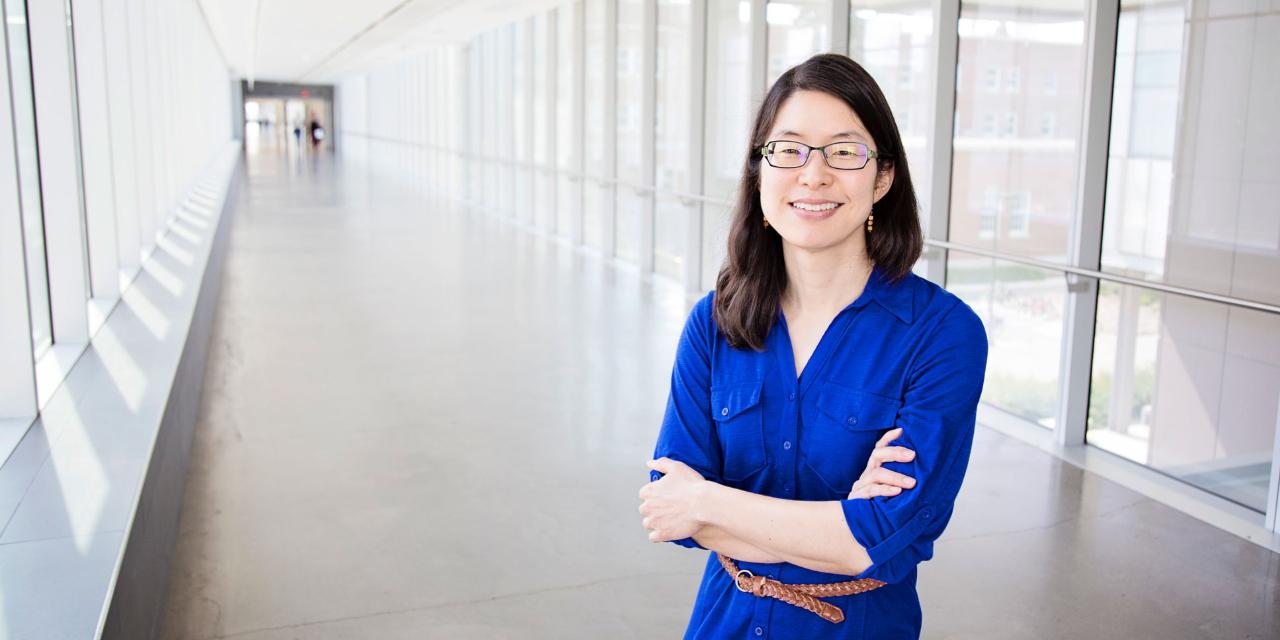University of Alberta researchers previously looking at an intervention for depression in pre- and post-natal women in China received a funding boost to include how COVID-19 is affecting the well-being of new mothers, newborns and health-care professionals, in an effort to help inform public health responses in Canada and around the world.
Building on existing research work and infrastructure in the Chinese province of Anhui, Shelby Yamamoto, an epidemiologist in the School of Public Health, and her team will assess the potential impact of the COVID-19 emergency on perinatal mental health.
The team will evaluate the effectiveness of an online intervention, investigate potential impacts in terms of adverse birth outcomes such as preterm birth and low birth weight, and explore women's experiences during the outbreak.
Yamamoto was one of seven U of A researchers to receive funding through the second round of the federal government's Rapid Research Funding Opportunity created to aid in the battle against COVID-19. Through two rounds of funding, 11 U of A research projects received $5.8 million in grants.
In the original study, health-care providers screened for depression while testing an internet-based mental health therapy called Mom's Good Mood. This long-term cognitive behaviour intervention features 11 modules that give women valuable information to help manage their stress while measuring depression levels.
Mental health experts offered support if women started to register elevated depression scores, said Yamamoto.
"The pandemic has thrown everything into disarray," she said.
She said pregnancy and the postpartum period can be a particularly sensitive time when it comes to depression, "and this (COVID-19 pandemic) is obviously going to further that impact.
"We also know that health-care providers on the front lines are being affected and we want to better understand to what degree, and to see if we can help."
Yamamoto said she wants to assess anxiety among health-care professionals and investigate the provision of perinatal health care during and after the emergency.
She said participating health-care providers will be asked to fill out a survey to assess their anxiety at different points throughout and after the pandemic, and will be offered psychosocial services should they need it.
"Given the speed with which COVID-19 took hold, we thought this was important to assess and to try to mitigate during the pandemic," she said.
Yamamoto said recommendations emerged after the 2003 outbreak of severe acute respiratory syndrome (SARS), which saw symptoms of post-traumatic stress disorder and depression among quarantined individuals in Toronto rise by a third. Countries were called on to build psychosocial resilience in advance of an outbreak, and bolster support during and after to help reduce the impacts of depression.
China still lags behind in terms of providing mental health services, with only one bed per 100,000 people, compared with the global average of just over four and Alberta's rate of about 45 beds per 100,000.
CIHR grant recipients from U of A
Matthew Croxen, Faculty of Medicine & Dentistry
Rapid RNA sequencing of coronavirus for public health surveillance and transmission
$788,040
Michael Woodside, Faculty of Science
Targeting programmed ribosomal frameshifting as a therapeutic strategy against 2019-nCoV
$370,700
Michael James, Faculty of Medicine & Dentistry
Towards anti-COVID-19 therapeutic development by targeting the viral papain-like proteinase
$311,000
Michael Houghton, Faculty of Medicine & Dentistry
Production of a recombinant S (spike) protein vaccine against SARS-CoV-2 and emerging coronaviruses
$750,000
Lexuan Zhong, Faculty of Engineering
Mitigation strategies against the public transmission of airborne COVID-19 in high occupancy structures: A program of research to develop optimized mechanical ventilation systems
$444,000
Shelby Yamamoto, School of Public Health
Assessing and addressing the psychosocial impacts of COVID-19 among pregnant women and health care providers in Anhui, China
$396,470
Timothy Caulfield, Faculty of Law/School of Public Health
Coronavirus outbreak: Mapping and countering misinformation
$381,708
